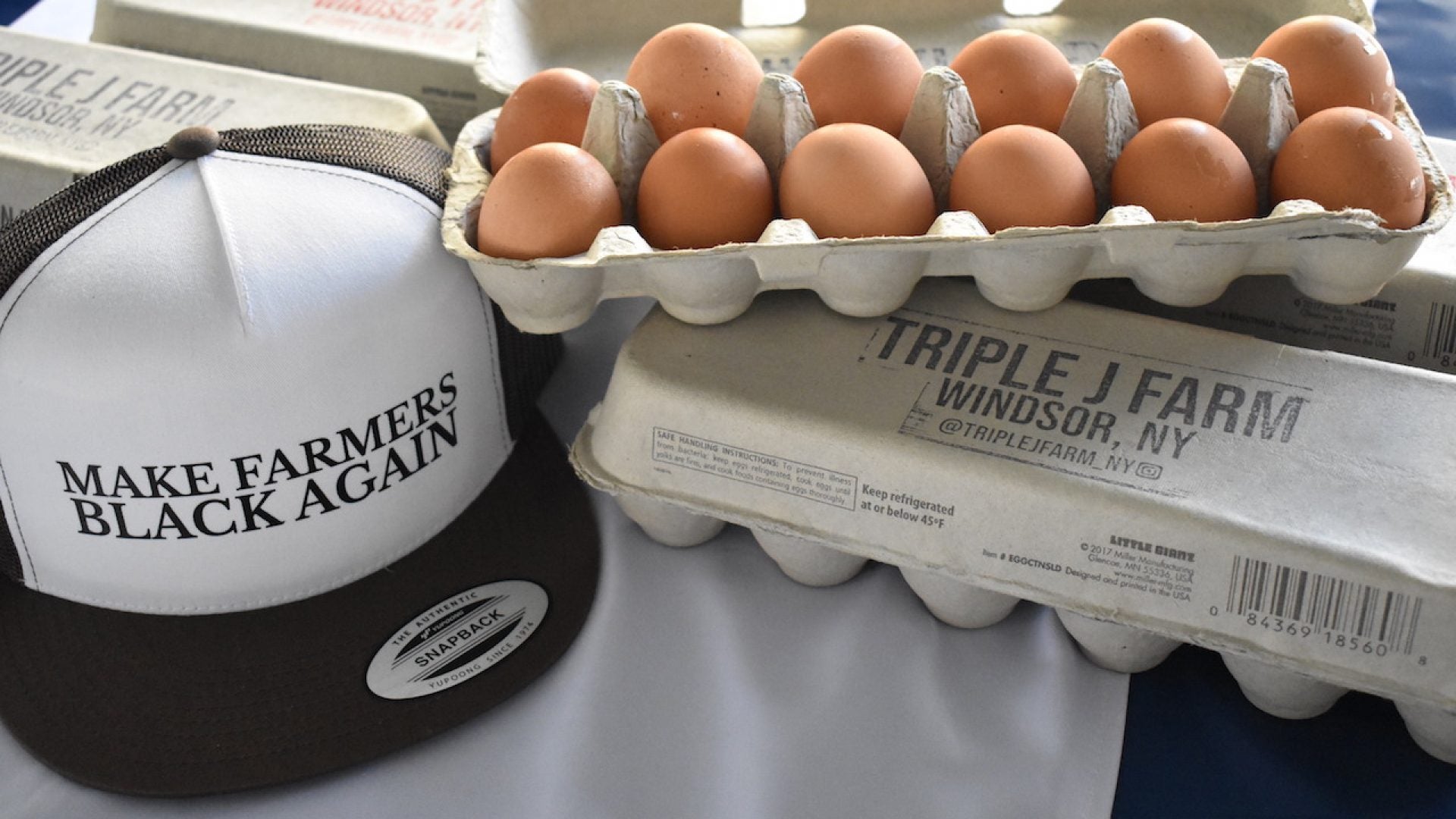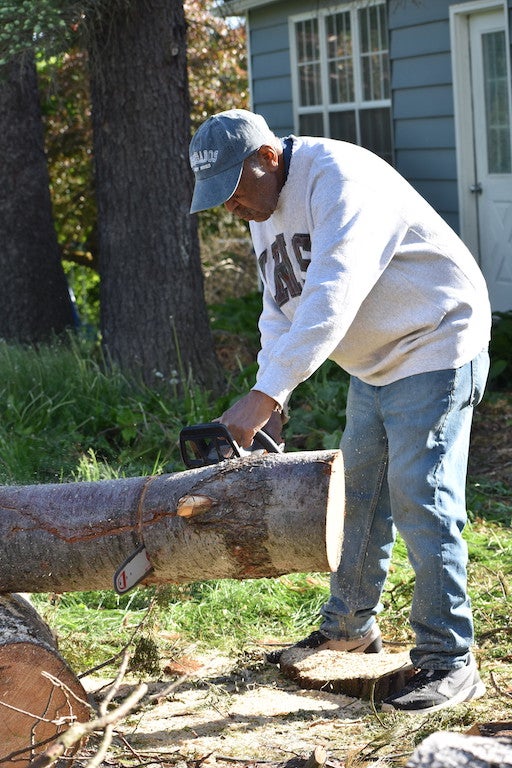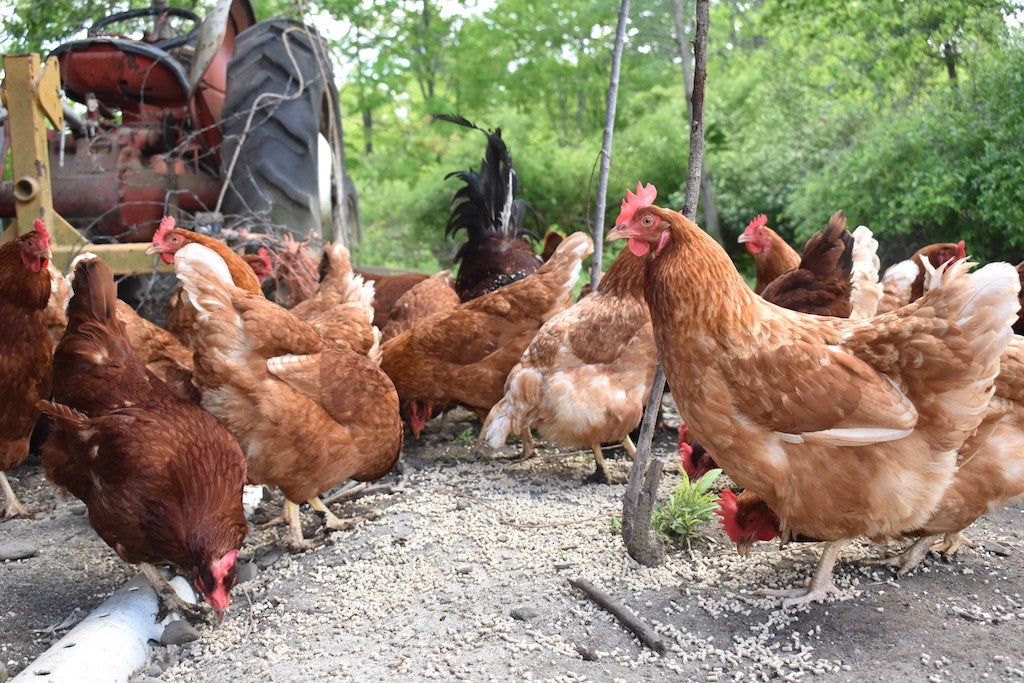
Growing up in Georgetown, South Carolina, James Minton Sr. used to spend his summers at Windsor Plantation on Edisto Island, where his aunt and uncle worked each day. It was during those summers that he envisioned owning a farm of his own.
That dream wouldn’t become a reality until nearly 50 years later when he moved from Harlem to Windsor, New York and started Triple J Farm. Minton wanted a place of refuge where his kids, grandkids and great grands could go to escape the daily chaos of New York City life.
But that farm has become much more than a place that produces cage-free eggs and other products, such as maple syrup. It has become a symbol of hope for Black farmers. According to a 2017 census conducted by the United States Department of Agriculture (USDA), of the 3.4 million farmers across the country, only 45,508 are Black. While these numbers are undoubtedly disparate, more recent reports suggest that a new generation of Black agricultural producers are working to close this racial gap—both within the farming world and beyond. Triple J Farm is one of them.

Pushing the narrative “Make Farmers Black Again,” Minton and his family members who run the farm alongside him are calling out land theft that Black folks and Black farmers have been dealing with for generations. And they are planting the first seed to do something about it. In an interview with ESSENCE, Minton’s grandson Jarrad Nwameme, Director of Marketing & Operations of Triple J Farm, speaks on the legacy of Triple J Farm and how we can “Make Farmers Black Again.”
In the 1920s, roughly 14 percent of all farms in the country were Black-owned. Now, around one percent are. What do you see as the root causes of this post-slavery separation of Black people from their farming traditions?
Jarrad Nwameme: As African-Americans, we have been dispossessed of about 13 million acres of land to equate to over $120 billion in wealth that has been lost. We migrated to the Northeast from the South and acquired jobs and trades in other industries. There has been a lack of agricultural education passed down from our family members and as a result, present day in our community/culture, farming is not deemed as “cool.” Most importantly, systemic discriminatory lending and monetary obstacles have been the biggest challenge in the past and (are) still an issue present day.
What inspired the movement behind ‘Make Farmers Black Again’?
Nwameme: Living as a Black male in America to be honest. The Black Lives Matter movement, social injustice and everything that has been happening in our country. This is just another item to add to our laundry list of demands. It’s our reparations. We want the playing field to be even and as my cousin Daryl always says, “Give us our 40 acres and a tractor.” We want to encourage our African-American community to adapt the same mentality. That’s what really sparked the message.

When we were brainstorming the idea of Triple J merchandise and branding, I wanted a message that was bigger than us and stood for something. Something that people can stand behind that’s for us; by us. That’s when “Make Farmers Black Again” was born. We first put (the slogan) on a hat then I said to myself “why can’t we put this same message on our product?”
I compare it to opening up a fortune cookie. Every time you crack one open there’s a message inside and you read it. I wanted to have that same effect. Breakfast is the most important meal of the day so I envisioned someone opening their carton of free-range farm-fresh eggs and seeing an affirmation inside of the carton as they start their day. Seeing the hashtags #MakeFarmersBlackAgain #BuyLand #GiveUSOur40Acres #GenerationalWealth. We want to instill that message in our culture so we can fight to close the wealth gap in this country.
Why do you think food, farming and access to land is so important for marginalized people?
Nwameme: It is important because that is the foundation this country was built on. That is what we come from and what our ancestors are still doing in Africa. This is how we should be living—eating fresh food that comes from the Earth and knowing where it’s coming from. Farming is important because we need to re-educate ourselves on how to be self-sufficient, grow our own foods and make a living off our own land. We also need to ensure that we have access to land because it’s like that age-old saying “Buy land because they ain’t making more of it; just building on top of it.” Developing these skills, using our resources and taking advantage of these opportunities can be the game-changer we need to create generational wealth for African-Americans.
How has the farm been impacted since the COVID-19 pandemic?
Nwameme: The farm has been impacted tremendously since the pandemic. There have been a few setbacks but also a lot of opportunities that have been created as a result. Pre-pandemic, our client list included other Black businesses such as Brown Butter in Bed-Stuy Brooklyn, Brooklyn Sweet Spot in Fort Greene, Brooklyn, approximately five to eight customers, and my grandfather’s church friends.
Once the pandemic hit, everything was shut down. So I had to come up with a way for the business to continue to generate income. Now more than ever people wanted fresh food delivered to their homes. During the pandemic my girlfriend and I did Instacart to keep busy, earn extra cash and mostly help any elderly people who were afraid to leave their homes to shop. It was huge during these times so I adopted the same contactless delivery method they were using and incorporated it into an egg-delivery service. That’s really when business started booming. We went from selling 30 to 40 dozen eggs a month to over 500 dozen a month.
What are the plans for the farm in the future?
Nwameme: The future is bright for Triple J Farm. We want to be the face of Black farming. We want to continue our egg business, sell more livestock, such as goats, lambs and cows. We also want to start a beer brewery, produce fruits and vegetables, host farm tours and provide jobs to people who were formerly incarcerated.
How can people specifically help Triple J Farm with its work or help you spread the message?
Nwameme: We appreciate all of the overwhelming support we’ve had thus far. We still need help to continue to spread the movement. We need more resources, partnerships and other organizations to give us the continuous guidance and mentorship that will help us grow and maintain the volume. As of now our staff consists of my grandfather James Minton, my cousin Daryl Minton and myself, along with a few family members. It’s a lot on our plate so we are doing the best we can. You can visit our website at TripleJfarmnyc.com, follow us on our Instagram @TripleJFarm_ny and contact us at Triplejfarmny@gmail.com.





